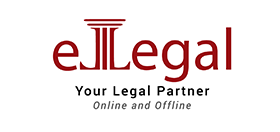For companies leasing property in Poland, the process involves additional considerations compared to individual leases. Commercial leases are governed by the Polish Civil Code and specific commercial property regulations. This guide outlines the key aspects of drafting lease agreements and managing leasehold properties for companies in Poland.
1. Drafting a Commercial Lease Agreement
A commercial lease agreement (umowa najmu lokalu użytkowego) is a legally binding contract between a landlord and a business tenant. It must be tailored to the specific needs of the company and comply with Polish commercial property laws.
a. Essential Clauses
Parties Involved: Include the full legal names, addresses, and registration details of both the landlord and the company.
Property Description: Provide a detailed description of the commercial property, including its intended use (e.g., office, retail, warehouse).
Lease Term: Specify the duration of the lease, which is often longer for commercial properties (e.g., 5-10 years).
Rent and Additional Costs: Clearly state the rent amount, payment terms, and any additional costs (e.g., service charges, property taxes).
Security Deposit: Include the amount of the security deposit and conditions for its return.
Maintenance and Repairs: Define responsibilities for property maintenance, repairs, and renovations.
Termination and Renewal: Outline conditions for lease termination, renewal options, and notice periods.
Subleasing: Specify whether subleasing is permitted and under what conditions.
b. Legal Compliance
Ensure the lease agreement complies with the Polish Civil Code and any industry-specific regulations.
Include a clause stating that the property will be used solely for the agreed commercial purpose.
c. Registration
Commercial lease agreements should be registered with the National Court Register (Krajowy Rejestr Sądowy) to ensure legal enforceability.
2. Management of Leasehold Properties
Effective management of commercial leasehold properties requires a proactive approach to ensure compliance with Polish laws and maintain a positive landlord-tenant relationship.
a. Rent and Cost Management
Use formal invoicing and bank transfers for rent and additional cost payments.
Monitor and adjust service charges and property taxes as needed.
b. Property Maintenance
Conduct regular inspections to ensure the property meets safety and operational standards.
Address repair and maintenance requests promptly to avoid disruptions to the tenant’s business.
c. Handling Disputes
Resolve disputes through negotiation or mediation to maintain a positive business relationship.
If necessary, seek legal recourse through the local court, ensuring compliance with Polish commercial property laws.
d. Lease Renewal and Termination
Provide timely notice of lease renewal or termination, as specified in the agreement.
Follow legal procedures for eviction, which require a court order in Poland.
3. Recent Legal Updates
Commercial Rent Control: Some Polish cities have introduced measures to regulate commercial rent increases.
Energy Efficiency: Commercial properties must comply with energy efficiency standards, including providing an energy performance certificate.
Tenant Protection: Recent amendments to the Civil Code provide additional protections for commercial tenants, particularly regarding lease termination and eviction.
By following these guidelines, companies can ensure their lease agreements are legally sound and their leasehold properties are managed effectively under Polish law. Consult us for our legal professional and tailored advice and to stay updated on recent legal changes.
We provide tailored lease drafting and leasehold property management services for companies, crafting legally sound agreements that protect your interests. Our team also offers ongoing management support, ensuring compliance with Nigerian lease laws and handling any lease-related issues that may arise.
